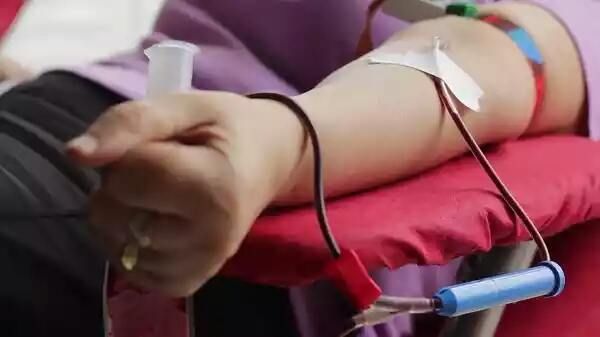Blood Donation - The importance of donating and some information

Those who need blood:
Accidental bleeding - The injured patient needs blood according to the type of accident.
Plasma plasma required for burns or burning on acid burns. This requires 3-4 bags of blood.
Anemia- When the amount of R.B.C in the blood decreases, there is anemia due to lack of adequate amount of hemoglobin in the blood. R.B.C. in hemolytic anemia The breakdown occurs, therefore the blood is needed.
Thalassemia - Disease-related diseases of a type of hemoglobin. The patient has to pay 1/2 bags of blood every month.
Heart Disease - 6-10 bags of blood needed for severe heart surgery Ges Bypass Surgery.
Hemophilia-inherited disease In this, bleeding does not stop easily, so platelets are rich in rich material.
Gestational bleeding is not usually necessary, but blood is given according to excess bleeding.
Blood cancer - Cancer is due to lack of blood components. Blood is given as per requirement.
Kidney dialysis - One bag of blood is required every time in dialysis.
Blood plasma needs 1-2 blood in the disease.
In Dengue fever, one bag of 4 bags of blood from the plate is separated from the platelet and given to the patient.
Understanding the type of surgery-type of surgery, different types of blood needs.
Blood Donation Eligibility:
Age: 18-57 years.
Weight: Up to 100 pounds or 45 kg. But in some cases (plate, plasma) weighing 55 kg or above.
If the blood pressure is normal.
If the amount of hemoglobin in the blood is 75% or above.
If recent (6 months) no accident or large operation.
Common diseases of blood include: malaria, syphilis, gonorrhea, hepatitis, AIDS, dermatitis,
If there is no heart disease, diabetes, typhoid and rheumatism.
If you do not use any special type of medication.
In four months, who did not give blood anywhere.
Among women who are not pregnant and whose menstrual cycle is not ongoing.
Blood Donation and After Blood Donation:
Prior to donating, every donor is asked about some personal and important questions about his health. They have to answer correctly. Blood transfusions, blood pressure, pulse speed are examined and blood donation is taken to know whether the donor's blood is immunized (cross-breaking). After blood tests, the presence of AIDS, hepatitis B, hepatitis-C, syphilis or any other organisms is advised to take necessary measures (blood donor). Blood donation begins with needle molecules. It takes a maximum of 10 minutes.
Before donating, you must be careful: -
A lot of ventilation arrangements
A donor can drink pure water if he thinks necessary.
importance information